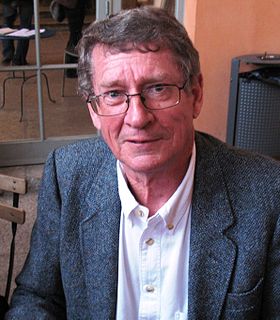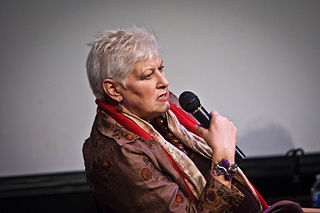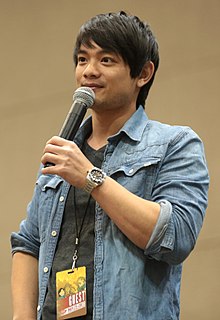A Quote by André Brink
If I speak with a character’s voice it is because that character’s become so much part of me that … I think I have the right then to imagine myself into the skin, into the life, into the dreams, into the experience of the particular character that I’ve chosen.
Related Quotes
When I read to children, I try to become the characters. It's great if you can make a separate voice for each character. Sometimes you can lower your voice with excitement or get more intimate about it: you can lean forward and engage the children as a narrator or as a reader. It's particularly important that you find the voice that you want to use for each character, because then children can imagine that person as you're reading aloud. And of course, the illustrations help enormously.
Actors sometimes immerse themselves into it so deeply that the line between who they are and their character can become blurred. For me, I think it's just about getting clearer on my whole life and who I am in order to make it possible for me to play whatever character is presented to me at a particular time.
The first thing that happens is the cleansing of the former character. I don't think a lot of actors talk about it, but there is usually a process where you essentially purge yourself of the character played prior to the movie. Then you want to think about what the character represents, and you write down all of the elements about this character and then take the time to find some synchronicity and start breathing the character.
Acting offers me an outlet. Here is the perfect opportunity to spend fleeting moments becoming an entirely different person; to experience a character entirely unlike myself, but to also make such a character a part of me. There is no routine here; there is no boredom. How does one get bored of life?
Becoming the character you are playing might work for some, but for me, it doesn't. I always maintain a gap between myself and my character because if I will go so deep into it, it will get difficult for me to come back. You should work towards understanding the psyche of your character and then play it.
When you are writing, you have to love all your characters. If you're writing something from a minor character's point of view, you really need to stop and say the purpose of this character isn't to be somebody's sidekick or to come in and put the horse in the stable. The purpose of this character is you're getting a little window into that character's life and that character's day. You have to write them as if they're not a minor character, because they do have their own things going on.






































